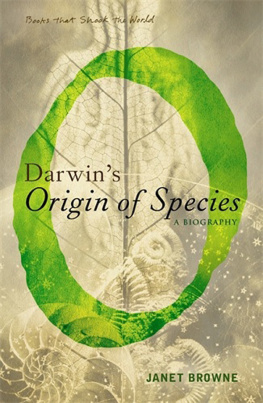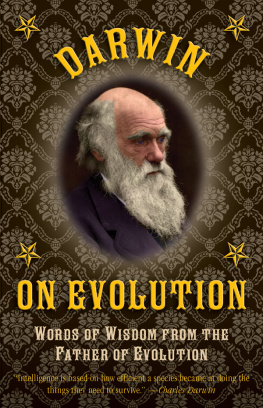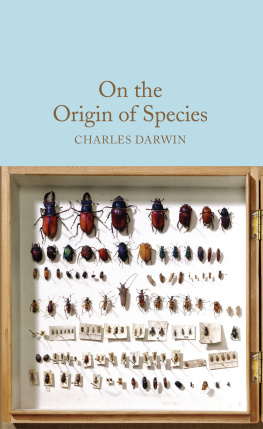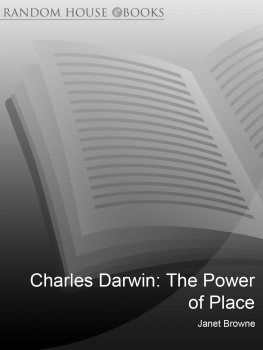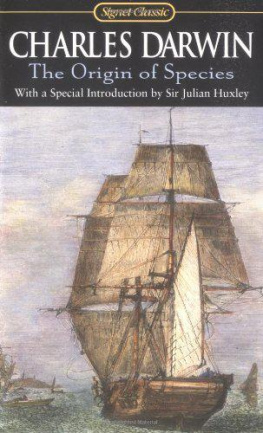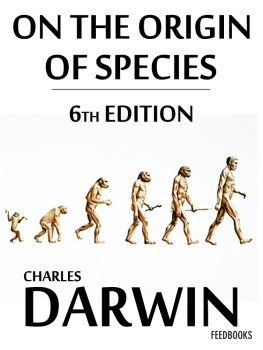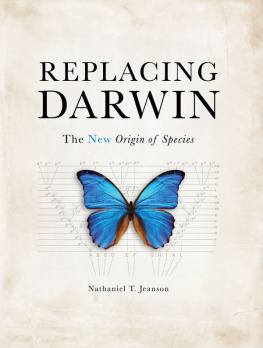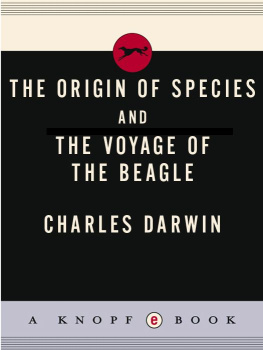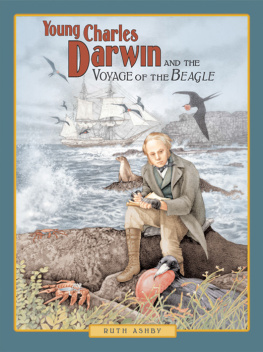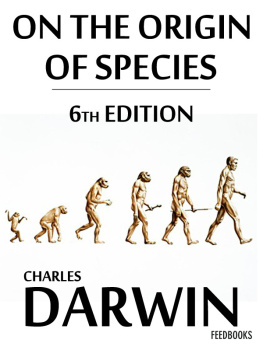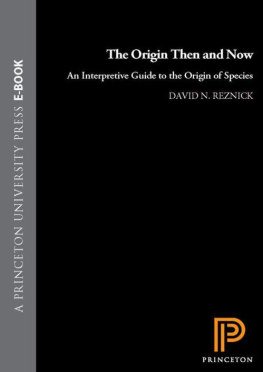Darwins Origin of Species
A Biography
Janet Browne is a professor of the history of science at Harvard University. She is the author of the landmark two-volume biography of Charles Darwin, Voyaging (1995) and The Power of Place (2002).
Other titles in the Books That Shook the World series:
Available now:
Platos Republic by Simon Blackburn
Thomas Paines Rights of Man by Christopher Hitchens
The Quran by Bruce Lawrence
Adam Smiths On the Wealth of Nations by P. J. ORourke
Marxs Das Kapital by Francis Wheen
Forthcoming:
The Bible by Karen Armstrong
Machiavellis The Prince by Philip Bobbitt
Homers The Iliad and the Odyssey by Alberto Manguel
Carl von Clausewitzs On War by Hew Strachan
Darwins
Origin of Species
A Biography
JANET BROWNE

First published in Great Britain in hardback in 2006 by Atlantic Books, an imprint of Grove Atlantic.
This paperback edition published in Great Britain in 2007 by Atlantic Books.
Copyright Janet Browne 2006
The moral right of Janet Browne to be identified as the author of this work has been asserted in accordance with the Copyright Designs and Patents Act of 1988.
All rights reserved. No part of this publication may be reproduced, stored in a retrieval system, or transmitted in any form or by any means, electronic, mechanical, photocopying, recording, or otherwise, without the prior permission of both the copyright owner and the above publisher of this book.
9 8 7 6 5 4 3 2 1
A CIP catalogue record for this book is available from the British Library
ISBN 978 1 84354 394 7
eBook ISBN 978 0 85789 714 5
Designed by Richard Marston
Typeset by Avon DataSet Ltd, Bidford on Avon, Warwickshire B50 4JH
Printed in Great Britain
Atlantic Books
An imprint of Grove Atlantic Ltd
Ormond House
2627 Boswell Street
London WC1N 3JZ
www.groveatlantic.co.uk
CONTENTS

ACKNOWLEDGEMENTS

Writing this book was a very enjoyable process and I am particularly grateful to my editor Louisa Joyner for her encouragement and support. The rest of the team at Atlantic Books were also fabulously efficient and friendly in seeing it through production. Jane Robertson worked wonders on my prose. Elsewhere, friends at the Wellcome Trust Centre for the History of Medicine at University College London have offered much useful advice. Special thanks, as always, are due to Bill Bynum and Michael Neve, very knowledgeable and stimulating Darwinian colleagues. I am also extremely grateful to the students who have, over the years, patiently discussed Darwin with me. This short study is written with them in mind. Most of all, this book is for Kit and Evie, students of other subjects, but only too familiar with Darwin over the dinner table. Their opinions are important to me and I hope this will provide a more connected story.
A NOTE ON EDITIONS

Charles Darwins On the Origin of Species by Means of Natural Selection, or the Preservation of Favoured Races in the Struggle for Life was published in November 1859 in London by the firm of John Murray. The publishers advertisements indicate that the most likely date of publication was Thursday, 24 November. This first edition is nowadays mostly seen only in rare book collections. Several modern reprints of the first edition text are available in different formats, including on the internet. The first edition has also been reproduced in the twentieth century as an exact photo-facsimile, the most well known being edited and introduced by the biologist Ernst Mayr and published by Harvard University Press in 1959. All quotes in the present volume, unless otherwise indicated, are taken from this facsimile.
The second edition was produced very soon after the first, on 7 January 1860. Darwin managed to make a few significant corrections. Three thousand copies were printed, making this the largest edition issued in Darwins lifetime. Six editions were published by the time of his death in 1882, each one with corrections and alterations. The third edition (1861) is interesting because Darwin added a short Historical Sketch in which he described other evolutionary theories. In the fifth edition (1869) he first used the expression survival of the fittest. The sixth edition, issued in 1872, is usually regarded as the last that Darwin corrected. He intended it to be a popular edition. It was printed in smaller type and cost much less. It was extensively revised and included a whole new chapter in which he answered criticisms. Most modern copies of the Origin of Species are based on this edition.
At the same time, editions were published by Appleton in New York. These do not completely match the English ones in content because Darwin often supplied corrections and other material either in advance or after each London edition. Translations were issued in eleven different languages during Darwins lifetime and he tried to supervise each one, not always successfully. The first French and German translations did not satisfy him and he sought out new translators, hence later editions in those languages are closer to Darwins original intentions. The book has received detailed bibliographical attention from Richard Freeman in The Works of Charles Darwin: An Annotated Bibliographical Handlist (2nd edn, Folkestone, Dawson Archon Books, 1977). A sentence- by-sentence analysis covering the changes made to all editions in English in Darwins lifetime was published by Morse Peckham, The Origin of Species: A Variorum Text (Philadelphia, University of Pennsylvania Press, 1959).
INTRODUCTION

Charles Darwins Origin of Species is surely one of the greatest scientific books ever written. Yet it does not fit the usual stereotype of what we nowadays expect science to be. It is wonderfully personal in style. It has no graphs or maths, no reference to white-coated figures in a laboratory, no specialized language. The years leading up to its publication were crammed with unexpected setbacks, chance encounters, high emotion and controversy. It sold out to the book trade on publication day and the arguments that it ignited spread like wildfire in the public domain, becoming the first truly international scientific debate in history. Readers attacked it or praised it, and struggled to align their deep-seated religious beliefs with Darwins disquieting new ideas. From the start it was acknowledged as an outstanding contribution to the intellectual landscape, broad in scope, full of insight and packed with evidence to support his suggestions but passionately criticized at the same time for proposing that all living beings originated through entirely natural processes. Apes or angels, Darwin or the Bible, were burning topics for Victorians. Many of these issues are still very much alive today. In fact, the writing and controversial reception of Darwins
Next page
